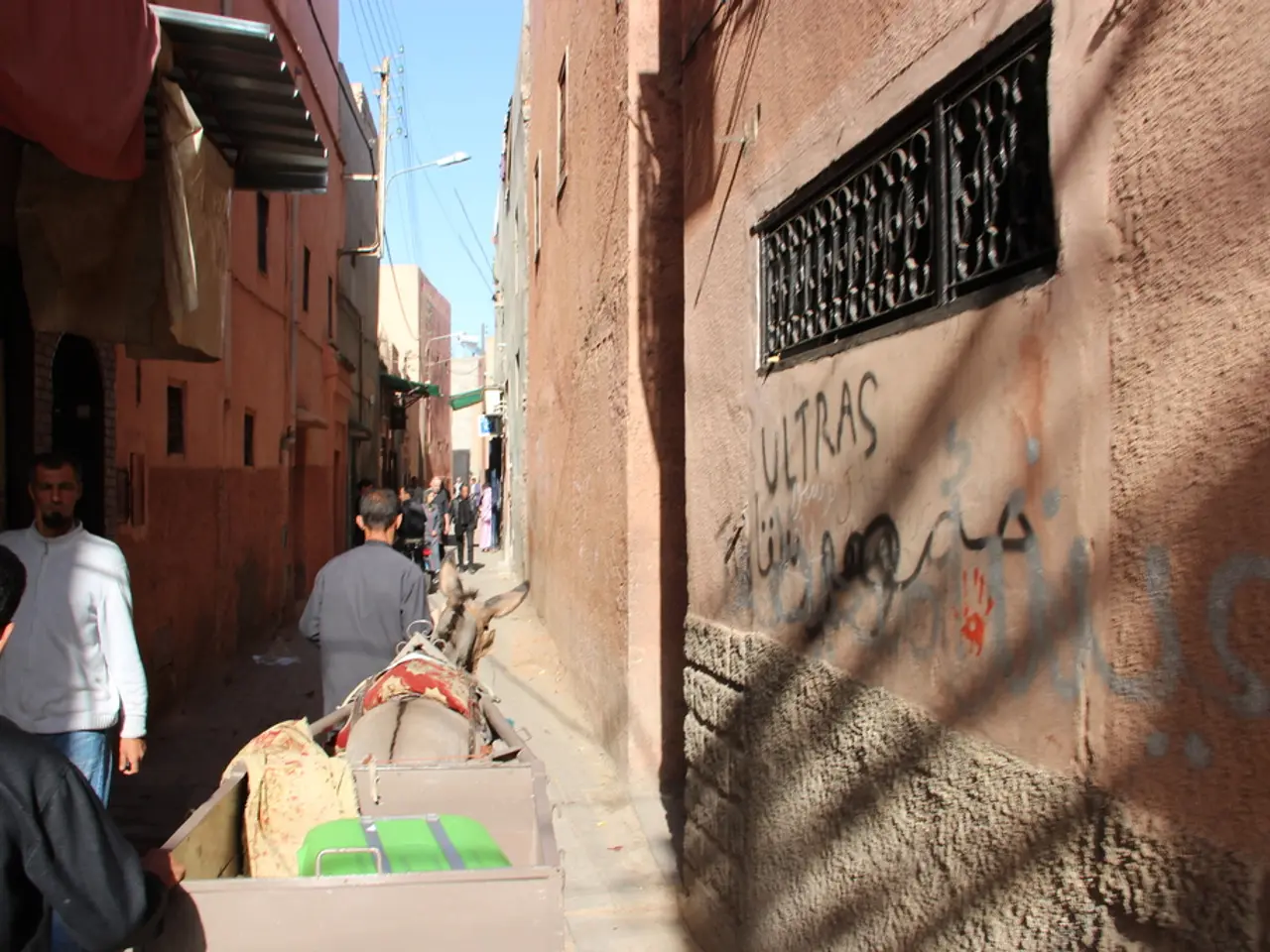U.S. imposes penalties on Palestinian officials for pursuing legal action
In a recent move, the United States has imposed sanctions on officials from the Palestinian Authority (PA) and the Palestine Liberation Organization (PLO), denying them U.S. visas based on their alleged failure to comply with commitments under the PLO Commitments Compliance Act of 1989 (PLOCCA) and the Middle East Peace Commitments Act of 2002 (MEPCA).
These sanctions, which include visa restrictions on members of both the PA and PLO, are seen as a strategic measure tied to compliance with peace commitments. However, they have drawn international criticism, with France, Canada, and 14 other countries urging joint recognition of Palestine and an immediate Gaza ceasefire. China, in particular, views the sanctions as detrimental to peace efforts.
The U.S. government argues that enforcing these sanctions supports stability by discouraging policies that conflict with prior peace commitments. However, critics may contend that such unilateral sanctions risk escalating tensions by hardening positions and complicating diplomatic solutions.
Regarding the violation of international law, the U.S. sanctions are grounded in domestic laws (PLOCCA and MEPCA) and are framed as enforcing international commitments made by the PA and PLO, including recognition of Israel and renunciation of terrorism. The U.S. maintains that these sanctions are a lawful response to violations of these commitments and thus do not violate international law.
However, opponents argue that imposing such sanctions extraterritorially or denying entry based on political considerations could raise legal and human rights concerns. Critics also argue that the U.S. is deepening the conflict by criminalizing Palestinian efforts to seek redress and justice. The U.S. is criticized for punishing the Palestinian victims while emboldening the occupying power.
Palestinian leaders strongly reject the U.S. move, with Wasel Abu Yousef, a member of the PLO Executive Committee, condemning the sanctions as a "clear endorsement of Israel's genocidal war on Gaza" and an attempt "to erase the Palestinian cause." Abu Yousef states that the sanctions are not about peace, but about silencing Palestinian rights, shielding Israel from accountability, and rewarding its crimes against the Palestinian people.
The U.S. policy towards the Palestinian conflict is perceived as a threat to justice, peace, and global stability. The U.S. continues to offer unconditional political, military, and financial support to Israel despite overwhelming evidence of war crimes, ethnic cleansing, and genocide against Palestinians.
The recent U.S. sanctions on Palestinian officials are a strategic measure tied to compliance with peace commitments, with mixed implications for global stability and no clear consensus indicating that they breach international law.
[1] U.S. State Department, "U.S. Imposes Sanctions on Palestinian Leadership for Undermining Peace Efforts and Supporting Terrorism." [3] White House, "Statement by Press Secretary Karine Jean-Pierre on U.S. Sanctions Against Palestinian Leadership." [4] U.S. Department of the Treasury, "Treasury Sanctions Palestinian Leadership for Undermining Peace Efforts and Supporting Terrorism."
This article was originally published by Al Bawaba, a leading news website.
- The latest development in entertainment news is the controversy surrounding the U.S. imposing sanctions on Palestinian officials, which some believe is a form of censorship and hinders efforts towards peace.
- In the realm of business, critics argue that unilateral sanctions like these could have a negative impact on the overall economy, as they potentially create a hostile environment for investment and collaboration.
- Science experts may debate whether these sanctions are justified under international law or if they violate human rights, as some argue that they could exacerbate the ongoing conflict and hinder diplomatic solutions.
- While the primary focus remains on the political implications of these sanctions, some find it relevant to discuss the potential impacts on casino and gambling industries, as Palestinian-American casino personalities and related policy and legislation might be affected.
- General news outlets covering crime and justice may delve into the legal aspect of these sanctions, as it raises questions about the legality of extraterritorial sanctions and their potential violations of human rights.
- In the realm of history, this event can be viewed as another chapter in the long-standing war-and-conflicts between the Palestinians and Israelis, highlighting the unresolved issues that persist in the region.




